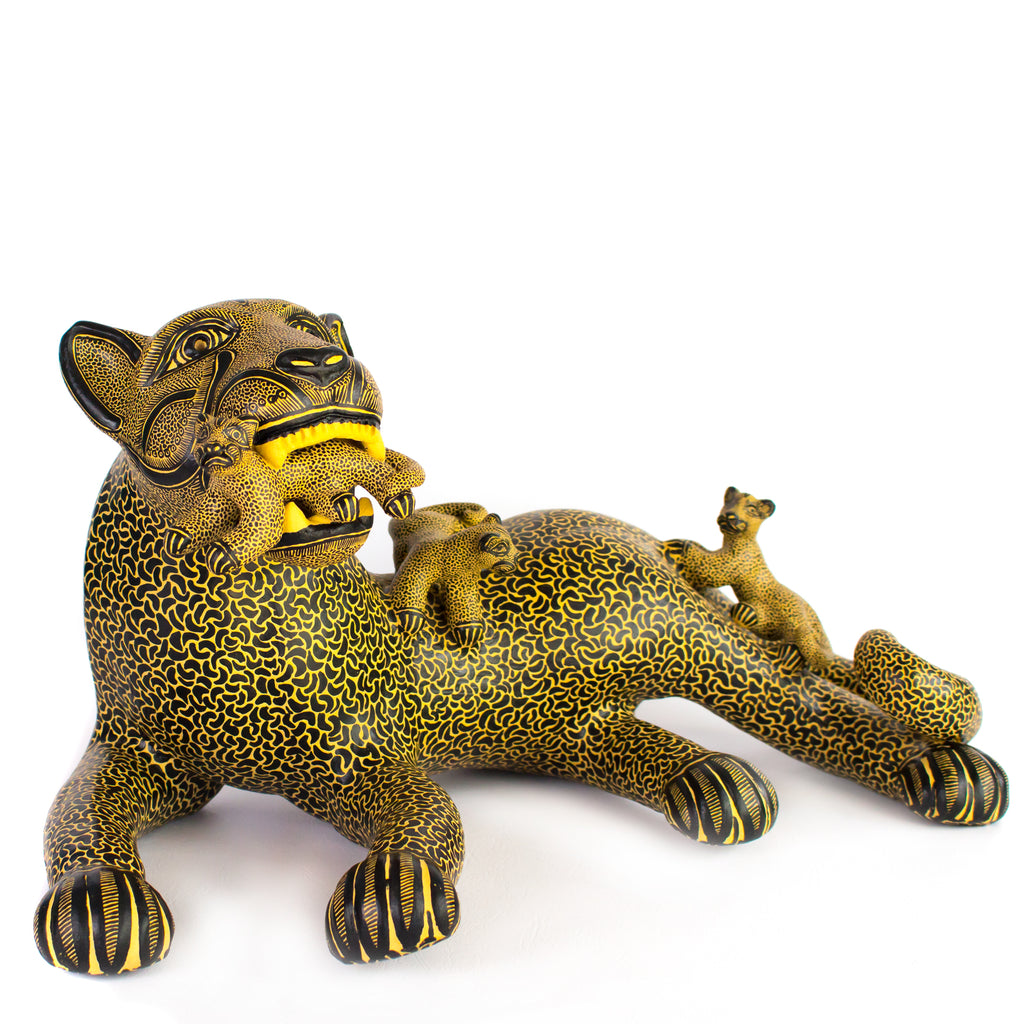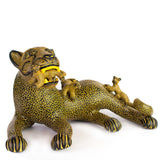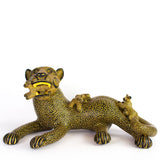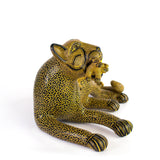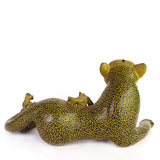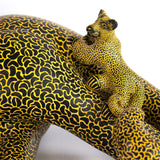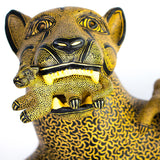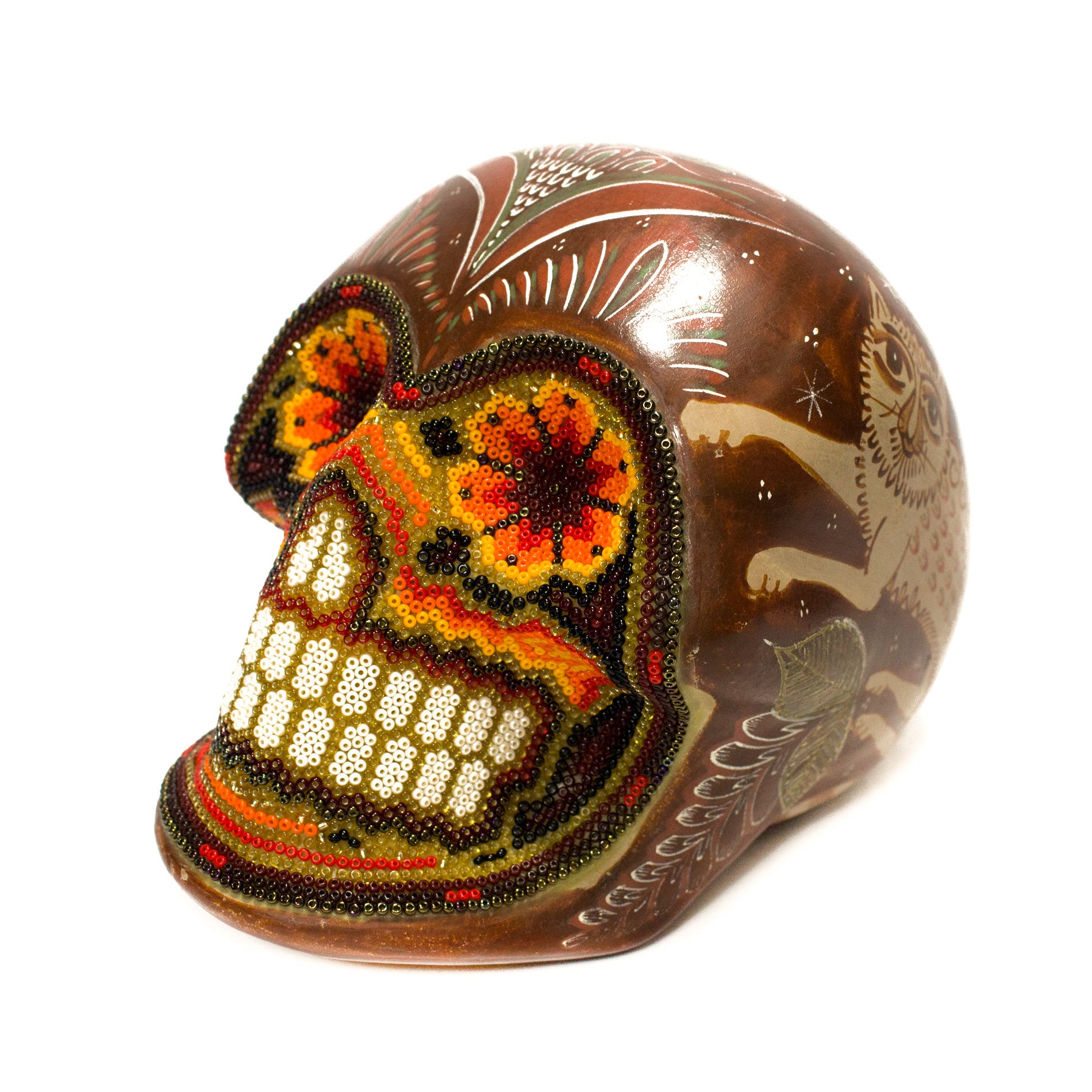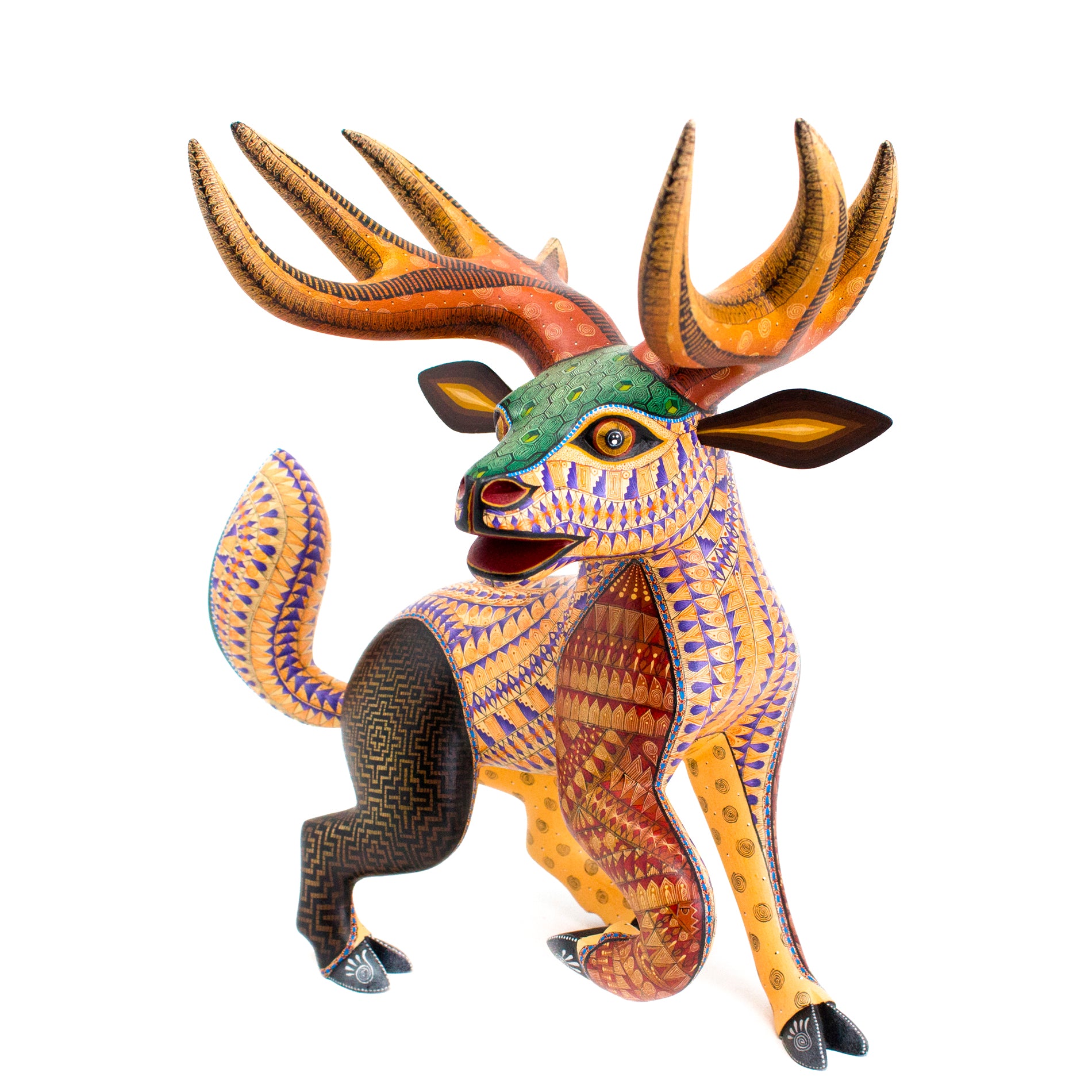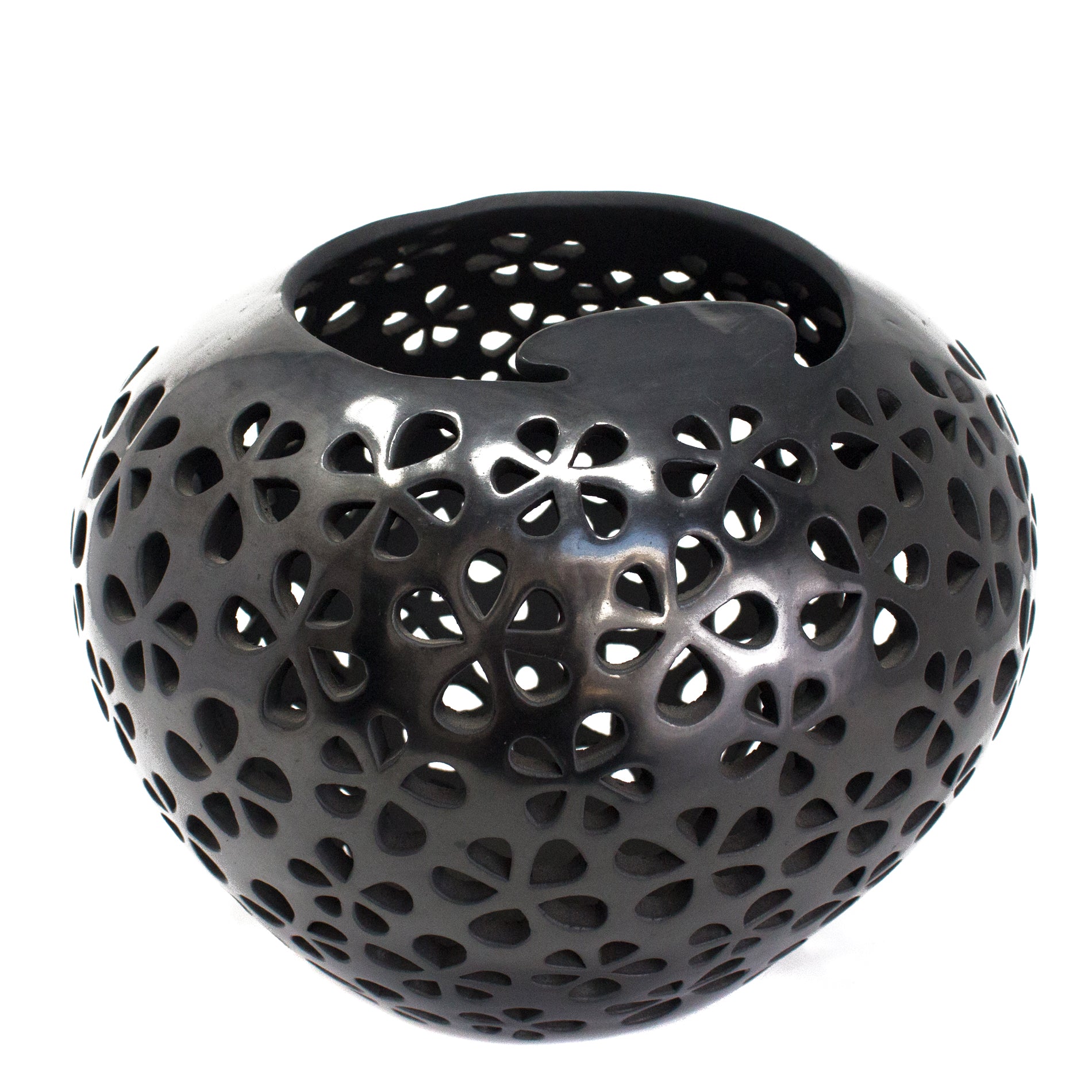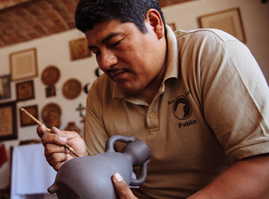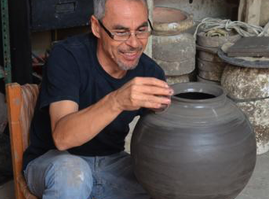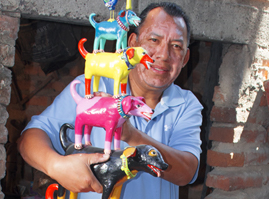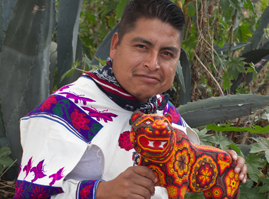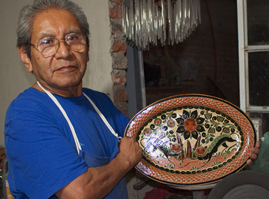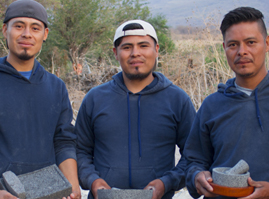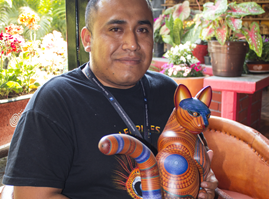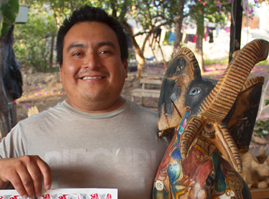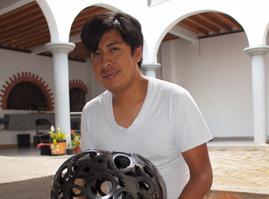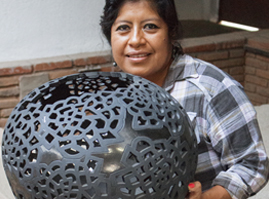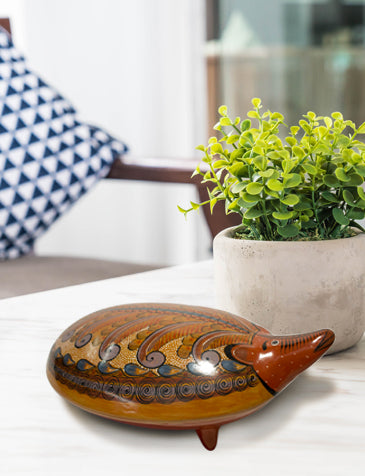Jaguar Mother with Three Cubs, Chiapas Pottery
- Sold By: NUEVA ESTRELLA
- Type: CHIAPAS POTTERY
Lots of us have a good memory of our mothers, fighting against every challenge life threw at them and pushing through it, no matter what, for their cubs. Let this piece be a tribute to them. Pouring every bit of their craft into beautiful and amazing pieces, “Nueva Estrella” Artisans bring hand-made and hand-painted pieces that will fill you, and your spaces with life and inspiration.
- Made from local clays and painted with water based acrylic paint.
Details:
This piece is currently not in stock. Once your order is processed, the artisan will receive an order to produce a replica of the item you ordered. Given the handcrafted and artistic nature of their pieces, your purchase may have some variation in decoration and shape. It is these same variations that make every item unique.
Elaboration times range from 25-35 days.
Measurements:
9.06" height x 9.84" width x 17.32" length
Weight:
9.04 lbs
During the months of March, April and May, before rain comes to their region, Amatenango's men and women walk down the hills to collect their precious clays, each Artisan extracts between 250 to 350 sacks of clay, which then are poured into plastic bags to preserve its humidity and keep it fresh. The clay is strained using a mesh for eliminating impurities. The clay is then mildly de-hydrated to achieve the artisan's desired clay consistency. When a clay ball is ready, it is laid over a smooth stone, and the shaping process begins. The clay is molded into an inverted and flattened cone; as it keeps on spinning, the clay is morphed into shapes of Jaguars, Pots, Pitchers and other creations. Once the piece's shape is finished, it is left under the sun for it to dry. This is the process's critical point, because this is when the clay can break.
Once the pieces are finished drying under the sun, they are put on top of a dry tree branch bed, and around it, vertically-standing logs. It is then fired at 600 to 700 Degrees Celsius, enough for the clay to lose its capacity for dissolving in water. This firing technique holds a great similarity to the one ancestrally used by the Mayan People who inhabited these lands.
In the end, when the pieces are ready for being painted, Potters use different minerals for obtaining natural colors to apply on the pieces. By sanding some of their selected minerals, and pouring the powder into a concave rock for it to be mixed with water, these artisans achieve red, black and even yellow tones. They then take their brushes, and with great skill, start decorating jaguars, pots, pitchers, salad bowls, pigeons, and many other pieces with the intention of bringing their art directly to you.

La Nueva Estrella
In 1999, a group of 52 indigenous Tzotzil women founded the Social Solidarity Society “Artisan Womens from Valle Amatenango of La Nueva Estrella”.
Since 2000, its members produce, create and sell their handicrafts in that store that also has an exhibition center. Mrs. Albertina Ramirez is the representative. Amatenango del Valle, is a Tzeltal town characterized for the beautiful and original pottery pieces made by local artisan women using pre-Hispanic techniques. It is located 21.74 miles Southeast of San Cristobal de las Casas, Chiapas, at the top of a hill surrounded by a fertile valley covered in corn fields. This is a town of Mayan origins. Amatenango del Valle is known as the capital of pottery in Chiapas due to the fact that half the population practices this activity, which is exclusive for women, who at the early age of 10, start learning how to work with clay.
For the production of their products, artisan women extract clay from a mountain located outside their town. They take it home, knead it and then cover it in sand for consistency. After that, they mold it, polish it and paint the pieces using rocks from the river to then fire them in an oven made with firewood cut by the local men. The process of mixing sand and water, molding the clay to then dry it and in wood ovens evokes the primal act of creation in Mayan worldview. Within the wide variety of products created by artisan women, the most common are: jaguars, pots, vessels, pigeons, roosters, braided baskets, white rabbit shaped flower pots, flower pots with calla lilies, wall hanging flower pots, rooster shaped fruit bowls, wall hanging pots, iguanas, turtles, ducks, censers, calla lily planters, turkey vessels, sets of plates, pigeon lamps, suns, moons, jars, among others.

